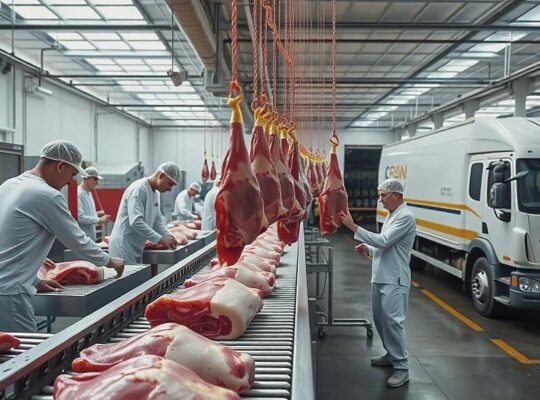Three and a half decades after German reunification, the economic gap between eastern and western Germany remains substantial, showing little sign of closing, according to a new study by the Institute for German Economy (IW). The findings, reported by “Der Spiegel”, indicate that progress in narrowing the economic performance differential has slowed considerably.
Klaus-Heiner Röhl, the study’s author, suggests that a complete economic convergence between east and west is unlikely in the foreseeable future, primarily due to structural differences. Declining population in eastern Germany, underinvestment in research and development and a shortage of both investment capital and startups are cited as key contributing factors. Notably, the study highlights a lack of robust, productive industries, alongside a dearth of large industrial companies and corporate headquarters in the east.
Recent data demonstrates a slight setback in economic performance for eastern Germany (excluding Berlin). In 2024, gross domestic product per capita fell to 71.77 percent of the western level, a decrease from 72.04 percent in 2023. While some convergence in industrial structure occurred in recent years within the manufacturing sector, this is attributed to a decline in the industrial share of western Germany rather than genuine economic growth in the east.
Röhl believes it is improbable that eastern Germany will reach the economic strength of western hubs like Munich or Hamburg. Instead, a more realistic scenario involves a convergence with the economic power of western federal states such as Schleswig-Holstein or Rhineland-Palatinate, whose economic and regional structures bear a closer resemblance to those of eastern states.
Despite the overall challenging outlook, the study does identify positive developments. Notably, labor productivity has, in certain regions and sectors, reached or surpassed the western average. Wage levels have also narrowed the gap, partially driven by the introduction of a minimum wage.
To facilitate a stronger economic partnership between eastern and western Germany, the researcher advocates for measures including a later retirement age and increased immigration of skilled workers to address looming labor shortages. Utilizing available housing in attractive, natural settings could be leveraged to attract prospective residents. Furthermore, a focus on application-oriented research and a reduction in bureaucratic hurdles for startups are recommended. Röhl expresses reservations about large-scale subsidies for individual projects, such as a proposed facility for the US chip manufacturer Intel in Magdeburg, citing potential risks and concerns about distorted competition.












